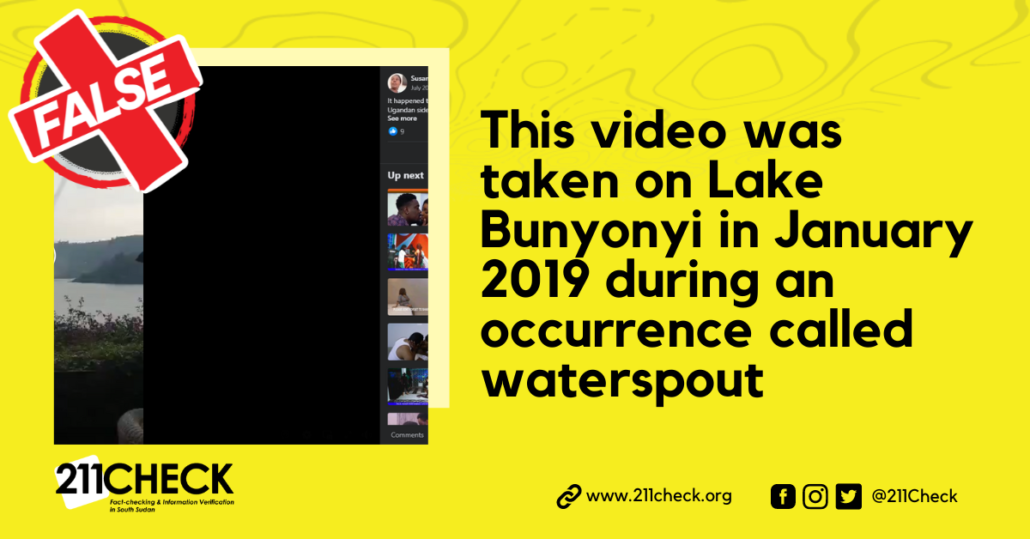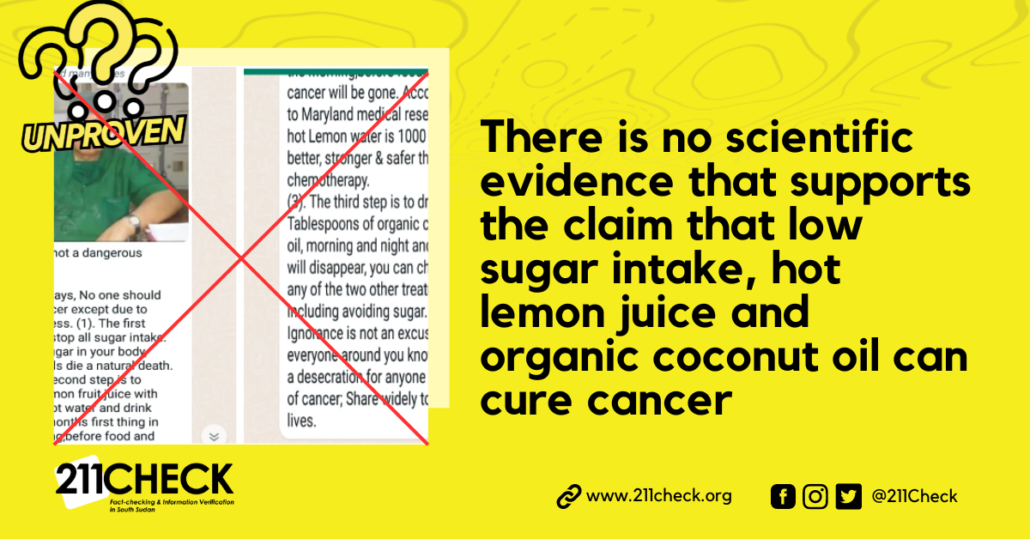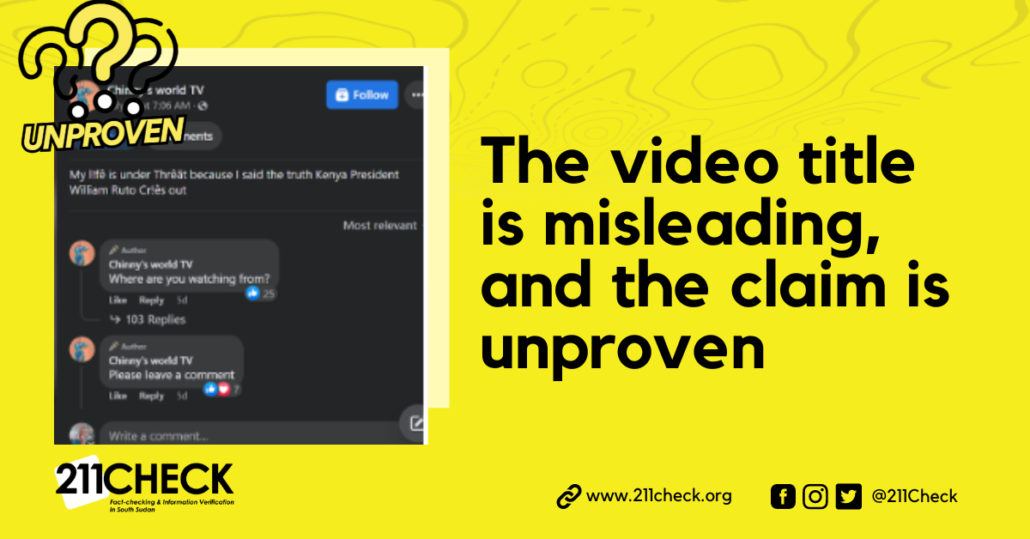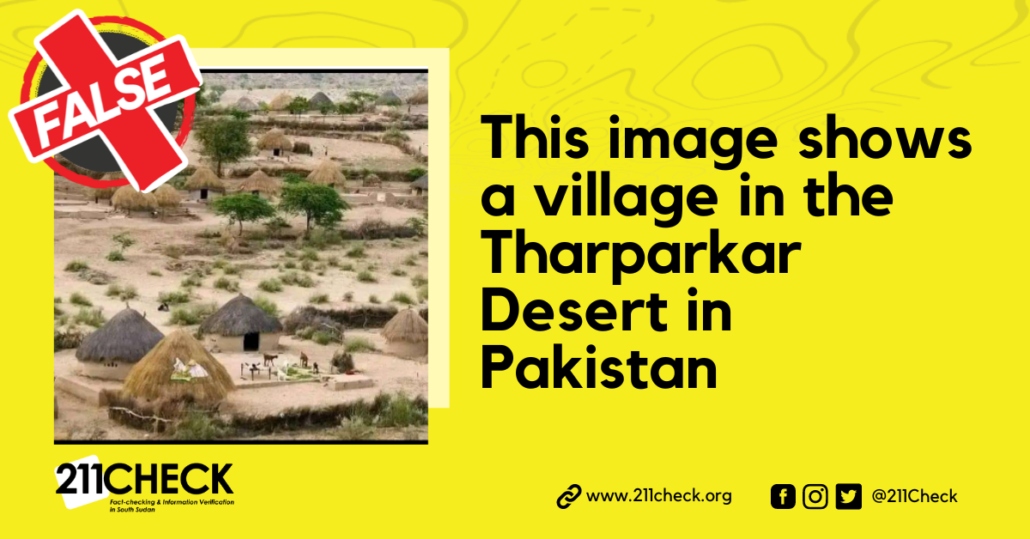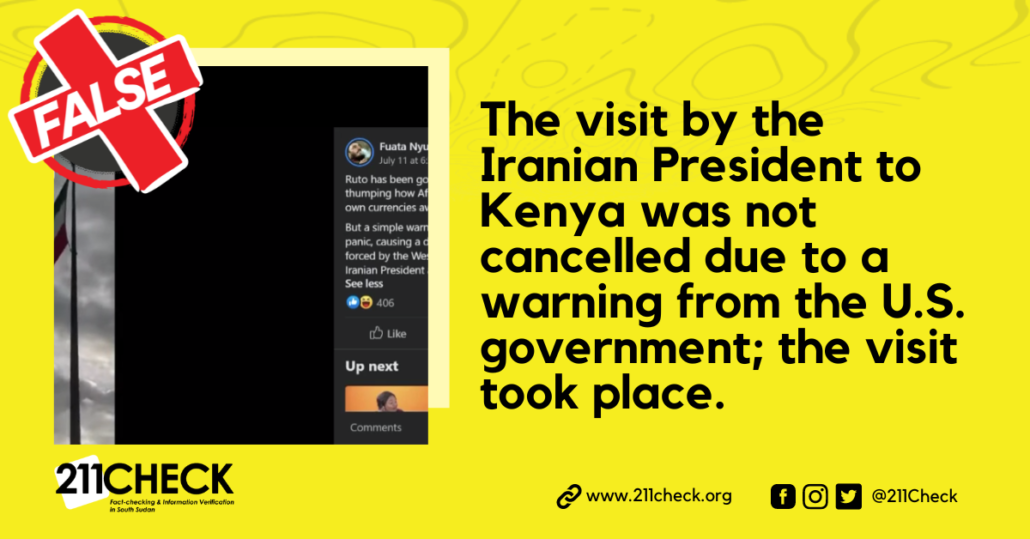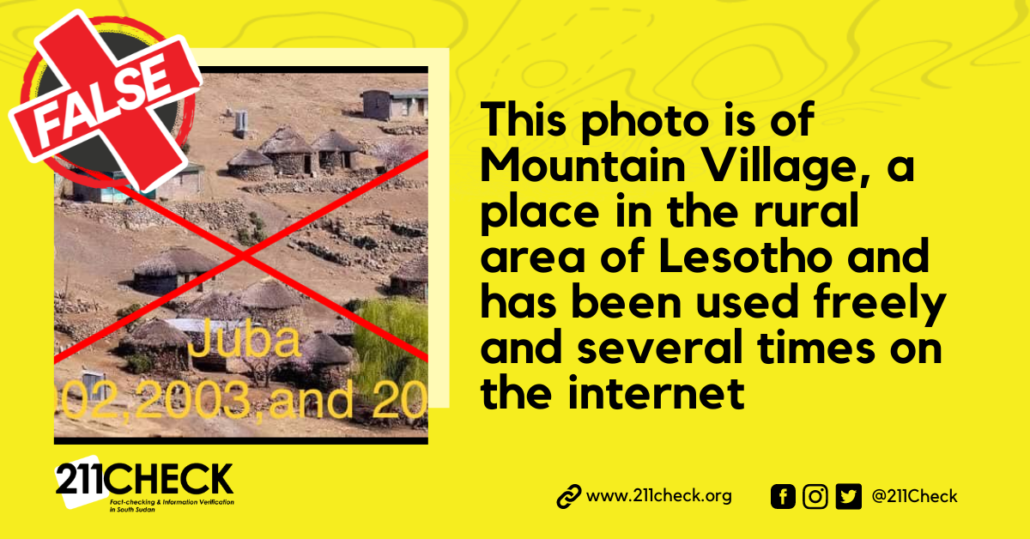Fact-check: A tornadic incident didn’t happen on Lake Victoria in July 2023
No, this video was taken on Lake Bunyonyi in January 2019 during an occurrence called waterspout.
Writer: Jibi Moses
A video circulating on WhatsApp and Facebook showing a water body flashing water in the air, claimed to have taken place on Lake Victoria in July 2023, is false.
The video shows people taking pictures and recordings, shouting, and ululating. Some of the voices are heard crying in English…. “We are going to die,…… if we keep quiet it will come, it will continue…”
The video accompanies the text: “This happened in Lake Victoria yesterday. What could it be?”
The follow-up comments on the video shared raised suspicion and prompted an investigation.
Investigation:
211 Check ran a Google Lens Search on the video, bringing in multiple results, with videos and pictures of the same scene dating back to 2019.
According to various sites, the incident happened on Lake Bunyonyi and was termed a tornado.
In one report dated January 22, 2019, by the Monitor, a mainstream Ugandan newspaper, the incident was reported as ‘Panic as tornado hits Lake Bunyonyi.’
The story narrated how residents witnessed an unfamiliar occurrence on the lake during a rainy evening. This caused panic among residents as it was happening for the first time in the area.
“Mr. Didas Kyarikora, alias Swansea, another resident of Mugyera in Bufundi Sub County, Rubanda District, said that although he saw a cloud of white smoke, he could not figure out what it was. However, he added that an elder informed him that it was a tornado hitting the lake,” reads part of the article.
Other sources that gazetted this moment are shown here and here.
The Uganda Media Centre, the agency facilitating communication of government policies, programmes, and projects to the public through the media, also reported the incident on Twitter but differed in how they explained it. According to them, the occurrence is called a waterspout.
Upon tracing the difference between the two, this is what we discovered: to start with, they are both columns of rotating air. The main difference is in where they form. A tornado begins over land, while a tornadic waterspout develops over water or moves from the land to the water. There are also other types of waterspouts.
Waterspout formation typically occurs when cold air moves across the Great Lakes, resulting in large temperature differences between the warm water and the overriding cold air.
Marine Insight, a publication about nature, has this to say:
“……Waterspouts can occur at any place all over the coastal regions of the world. There is no particular place, as per scientific explanation, where they are more likely to happen. However, despite that fact, some regions worldwide witness waterspouts more often than others. The Florida Keys, Cienfuegos Bay in Cuba, and the waters of the Great Lakes are the most common places where waterspouts have been spotted.”
Conclusion:
The claim that a tornado happened in July 2023 on Lake Victoria is false. The incident, a waterspout, happened on Lake Bunyonyi in Southwestern Uganda, bordering Rwanda, in 2019. The phenomenon is an intense columnar vortex that occurs over a body of water.
This fact check was published by 211 Check with support from Code for Africa’s PesaCheck and the African Fact-Checking Alliance.
To ensure accuracy and transparency, we at 211 Check welcome corrections from our readers. If you spot an error in this article, please request a correction using this form. Our team will review your request and make the necessary corrections immediately, if any.
It’s vital to fight misinformation and disinformation in the media by avoiding fake news. Don’t share content you’re uncertain about. False information can harm and mislead people, risking lives—Fact-check before sharing. For more details, visit https://211check.org/ or message us on WhatsApp at +211 917 298 255. #FactsMatter

